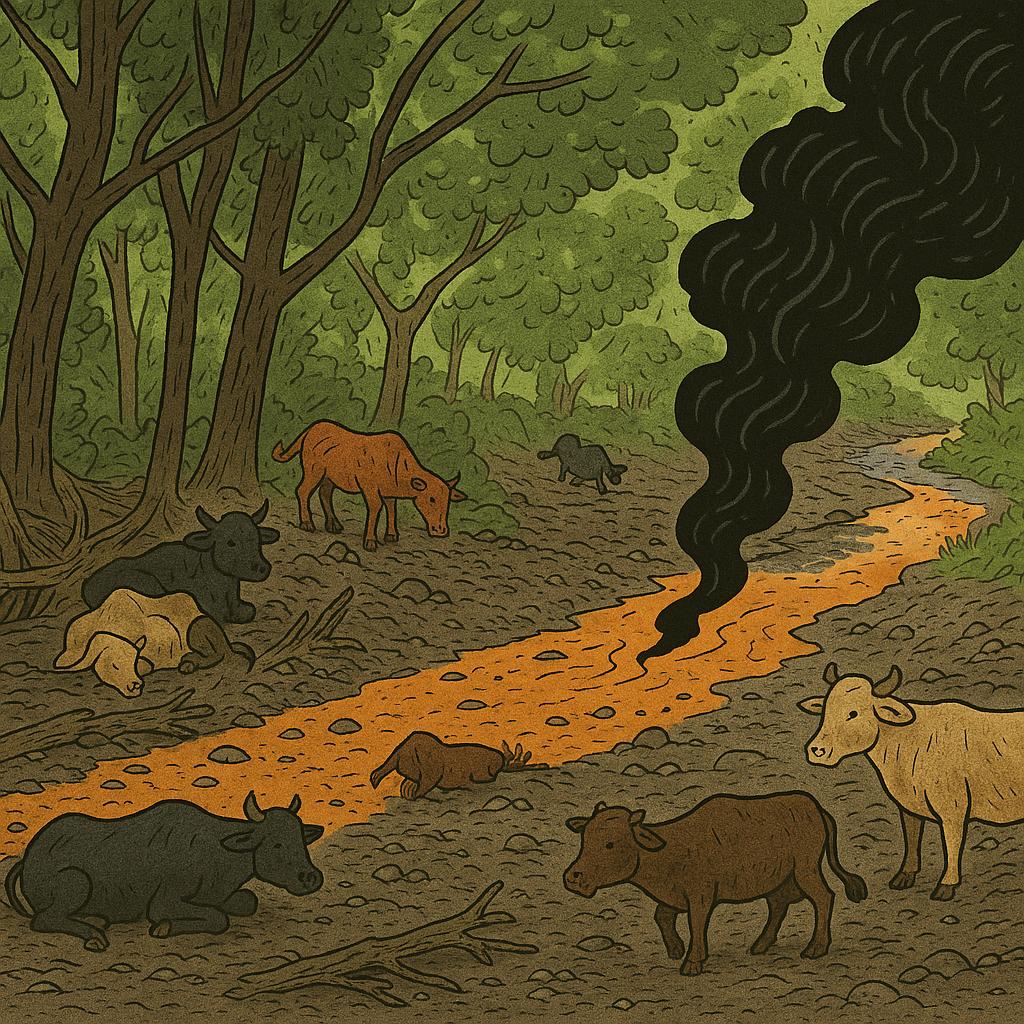The sun beats down on Lusumbami Primary School in Hwange. Just beyond the fence, Chinese contractor Zimberly Investments operates heavy machinery, filling the air with smoke, diesel, and the constant sound of drilling and blasting. Inside the classroom, it’s hard for children to concentrate.
Grace Mpofu*, a teacher at the school, stands at the window, watching the disruption unfold. Turning to the reporter, she says in a low voice, “How can they do this to us? Don’t they care about the future of our children?”
A loud blast shakes the ground, rattling the windows. Children scream and cover their ears as Mpofu rushes to calm them.
Outside, workers from the Chinese contractor dig a new pit just 50 meters from the school fence. The earth is scorched, trees lie uprooted, and a nearby stream runs thick with sludge and brown, polluted water.
As the day wears on, the mining activities show no signs of slowing. The children struggle to focus, distracted by the chaos outside. Mpofu and her colleagues try to teach, but it’s clear the situation is unsustainable.
As the final bell rings, the children pour out of the school, eager to escape the toxic air. But as they walk home, the sound of blasting lingers.
About 20 kilometers away, the Deka River flows sluggishly—its waters darkened by coal mining pollution.
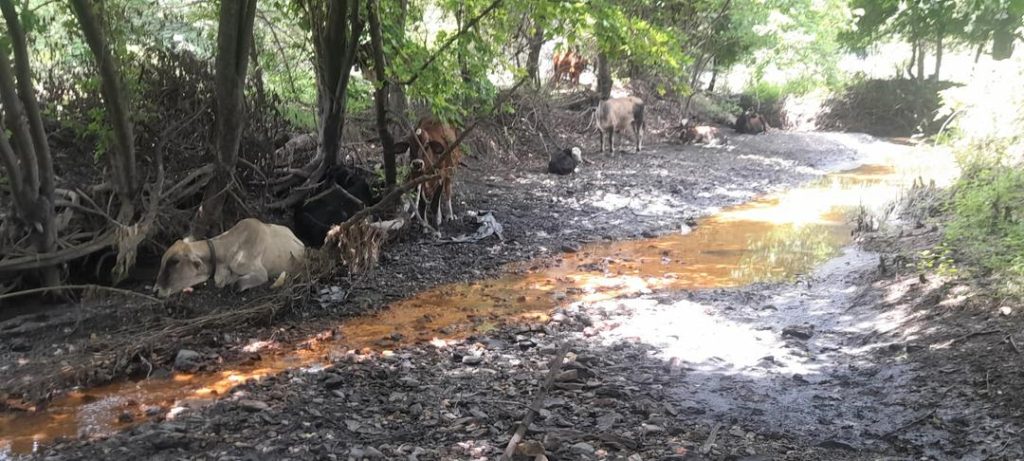
For Erica Moyo, a 35-year-old mother of three, the contamination has become part of the hardship her family now lives with.
The Deka River, a vital water source for communities such as Zwabo, Makuyu, Mashala, Shashachunda, Kasase, and Mwemba in Hwange district, has become a symbol of environmental neglect. Once a lifeline, its polluted waters now kill fish and pose serious health risks.
Erica’s family, like many in her village, relies on the Deka River for fishing, irrigation, and drinking water. But since Chinese mining operations began, the river has grown increasingly polluted.
“The river used to be our lifeblood. Now, it’s a curse. The fish are dying, and our crops are withering away.”
Erica Moyo, a 35-year-old mother of three
In Shashachunda, villagers say the polluted river has disrupted daily life, affecting farming, fishing, and access to clean water.
Hwange, in Matabeleland North, is facing an environmental crisis as Chinese mining operations expand rapidly. Once-pristine land is now scarred by the relentless drive for mineral wealth.
Chinese coal and coking operations, once hailed as a sign of economic progress, have come at a steep cost—polluted rivers, degraded land, damaged ecosystems, and disrupted livelihoods. Pollution from Hwange Colliery Company Limited (HCCL) and over a dozen Chinese firms mining in its catchment area has left lasting environmental damage across Hwange district.
Mining operations have released toxic chemicals—including heavy metals and particulate matter—into the air and water. Nearby rivers and streams, once rich with aquatic life, now flow murky with industrial runoff. Coal dust hangs in the air, worsening respiratory problems among local residents.
“Our air is now polluted with smoke and dust from the mining activities and coking plants that have mushroomed close to residential areas,” says Ackim Phiri. “We are shocked at how authorities have allowed companies to mine so close to where people stay.”
An investigation by The Citizen Bulletin found that Hwange Colliery Company contracted Chinese firm Zimberly Investments to mine coal in Lusumbami village—less than 100 meters from a primary school and nearby homes. Despite residents’ outcry, operations continue unchecked, blanketing the area in noise and coal dust.
“We engaged the company as residents, and during a meeting with a senior Colliery representative, we were told they were operating within their rights since they owned the concession. If we weren’t happy, we were bluntly told to find accommodation elsewhere,” says one resident, who requested anonymity for fear of reprisals.
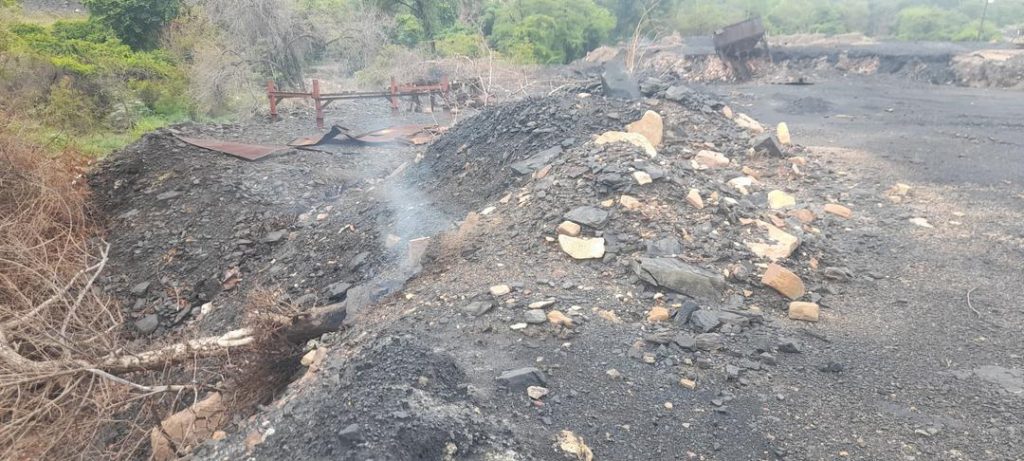
The operations have disrupted school activities and damaged infrastructure, with cracks appearing on classroom walls and nearby houses. Windows have shattered from the constant blasting at the opencast mine.
Despite the environmental devastation, Chinese companies operating in Hwange have faced little to no accountability. Critics say the government has failed to act, continuing to issue licenses and permits without enforcing proper environmental impact assessments—despite numerous complaints.
“The government is more interested in attracting foreign investment than protecting its citizens and the environment.”
says a local environmental activist, who preferred to speak off the record
Local authorities in Hwange have come under scrutiny for failing to protect communities from the environmental impacts of coal and coking operations. Despite repeated outcries from residents and conservation groups, officials have been accused of prioritizing investor interests over environmental and public health concerns.
Residents say they’ve had enough of broken promises and official silence in the face of destruction.
“We are tired of being treated like second-class citizens,” says Rosina Moyo. “Our health, our livelihoods, and our environment are all being destroyed. It’s time for the government to take responsibility and act.”
As coal mining continues to expand in Hwange, environmental advocates warn that stakeholders must prioritize sustainability and accountability.
Daniel Sithole, director of Green Shango Trust and a climate and environment advocate, says while Chinese investment has created jobs, “this economic growth comes at a notable environmental cost. The region faces severe degradation—deforestation, loss of biodiversity, air and water pollution—all of which threaten fragile ecosystems and public health.”
The push for tighter regulations, environmental rehabilitation, and stronger community engagement is growing louder as coal mining continues to scar Hwange. In some cases, residents have taken matters into their own hands, reporting pollution and environmental damage to the authorities.
But despite efforts by the Environmental Management Agency (EMA) to enforce environmental laws, the agency has faced criticism for failing to hold mining companies accountable. While some mines have been fined or temporarily shut down, these actions are widely seen as inadequate. Political interference, critics say, has weakened EMA’s enforcement capacity.
Communities continue to resist, citing environmental degradation, displacement, and lack of compensation.
One long-running dispute involves Beifer Investment and the Dinde community, which has opposed a coal mining project over concerns about forced relocation, pollution of the Nyatue River, and damage to sacred sites. The community alleges it was not properly consulted and accuses the company of submitting a doctored Environmental Impact Assessment (EIA).
In 2023, despite years of protest and a fact-finding mission by a Parliamentary Portfolio Committee, Beifer was cleared to begin operations—disappointing many in Dinde.
Similar disputes have emerged across the country, as communities push back against mining investments that sideline their rights and damage the environment. Critics argue that government authorities have failed to ensure companies comply with environmental and social safeguards.
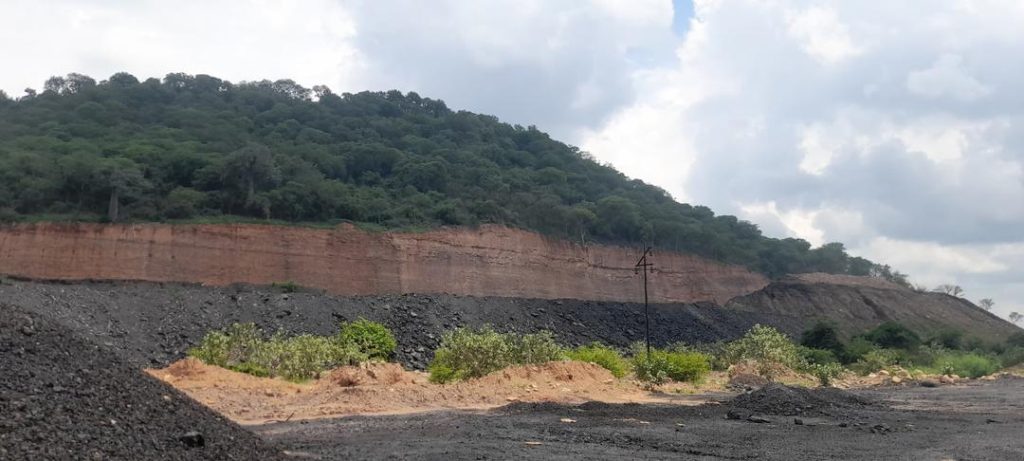
Rosemary Shoko, a villager in her sixties from Shashachunda, says she no longer trusts the Deka River she grew up drinking from.
“We used to fetch water, weave baskets from reeds, and fish for food,” she says. “Now the fish are gone, the water is polluted, and when we try to raise these concerns, no one listens.”
She adds that some women in the village have developed skin reactions after bathing in the river.
In a recent petition to Parliament, residents raised concern over coal dust pollution and the failure of the Pneumoconiosis Act to protect those not formally employed by mining companies.
The law, enacted in 1971, covers health protections for workers in dusty occupations. But community members argue it excludes residents living near mines who are equally exposed to dust and respiratory hazards.
“The Act wasn’t designed with residents in mind,” the petition states. “Only mine employees receive regular medical checks. The rest of us are invisible to the law.”
Residents are now calling for reforms that extend protections to all those exposed to coal dust—and that compel mining companies to reduce pollution in residential areas.
Sithole warns that unsustainable resource extraction threatens the region’s long-term stability.
“Coal mining brings jobs,” he argues. “But it also brings deforestation, biodiversity loss, and air and water pollution. Without a balanced approach, this development will come at a cost we cannot afford.”
Scientific studies of the Deka River have confirmed high levels of manganese—which can cause muscle pain and fatigue—and an acidic pH of 4, making the water unsafe for drinking. Total dissolved solids (TDS) exceed safe limits, pointing to severe industrial pollution.
Abandoned shafts like those of Hwange Colliery have also contributed to acid mine drainage, polluting the water system with toxic runoff.
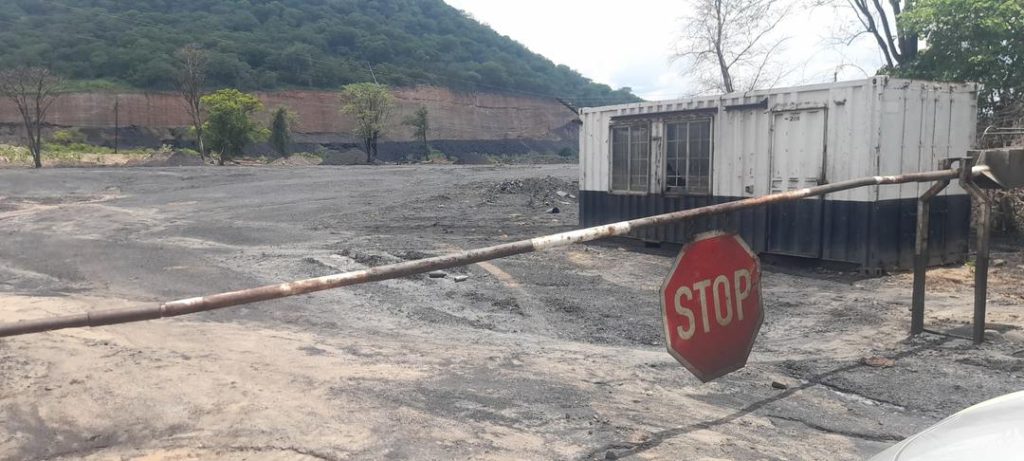
Each year, more fish kills are reported along the river. Villagers say their livestock die after drinking from its banks. Some report stomach pain and other symptoms after consuming the water.
In response, local community water monitors have begun working with scientists to collect data on contamination. Armed with evidence, they are pressing authorities and mining companies to take action.
“We’re not just fighting for clean water,” says local activist Thembi Ncube. “We’re fighting for our survival.”
Efforts to get a comment from Hwange Colliery spokesperson Beauty Mthombe were unsuccessful. She did not respond to calls or written questions sent to her email, as she had requested.
Editor’s note: Names marked with an asterisk * have been changed to protect the identities of sources.

